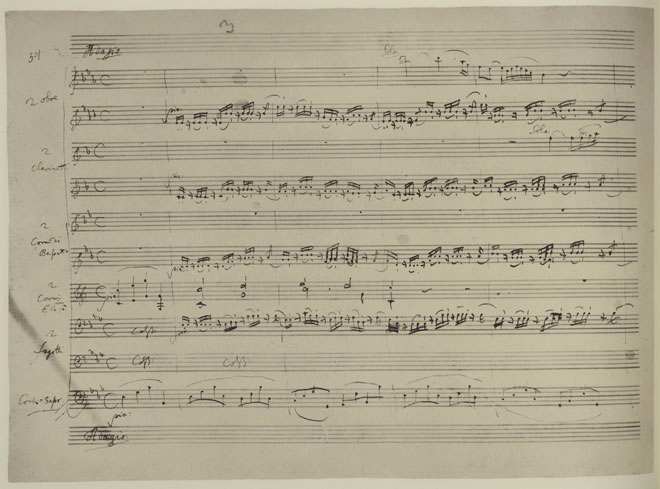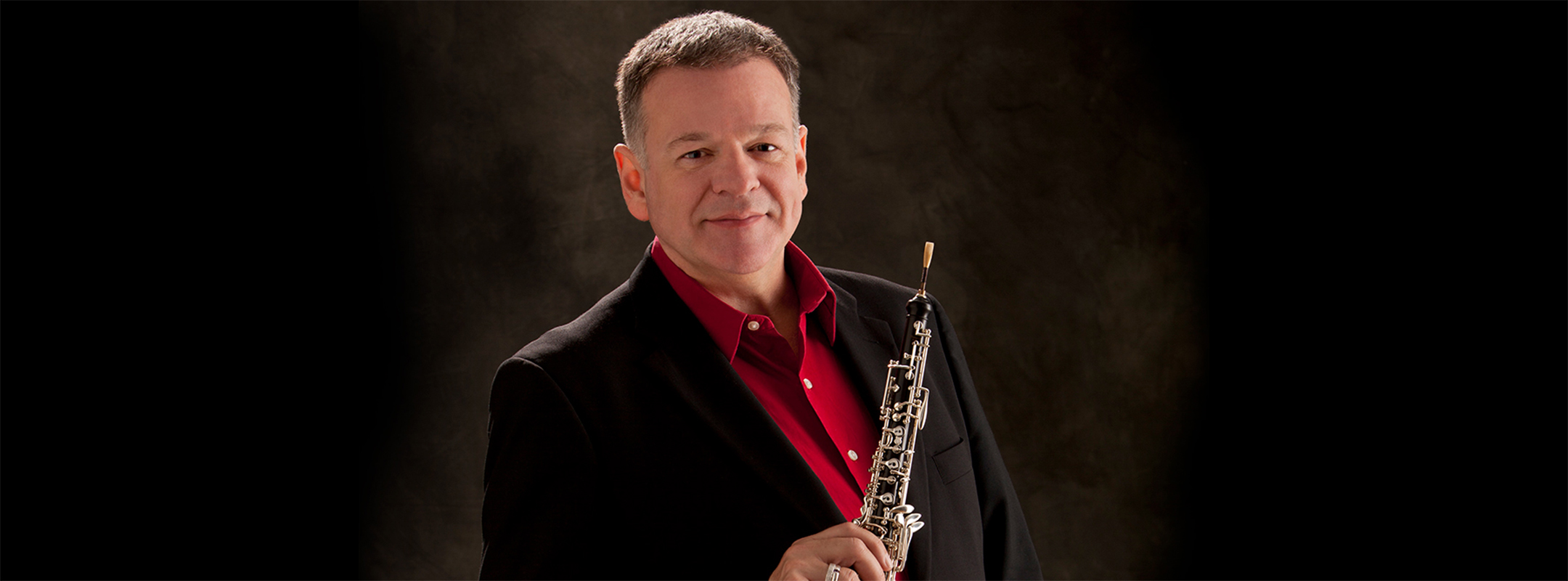Oboist and conductor, Nicholas Daniel, talks to us about Mozart’s ambitious Serenade in Bb for winds, ‘Gran Partita’.
"Mozart’s Gran Partita is many things, and deeply loved, that’s for sure, but for the performers it is two extra things. Firstly it’s like climbing a musical and physical Mount Everest, and then it’s also like driving a huge lumbering bus (full of ballerinas) round an F1 race track at full tilt! And what’s so extraordinary is that not 5 seconds passes by without one inwardly exclaiming at the sheer beauty and invention of the music.

Mozart must have felt incredibly strongly about Wind Chamber Music to have written a near hour long work for instruments never before used together. He has 4 horns; so that he has full chromatic use of harmony with no awkward crook changes, then pairs of oboes, bassoons, clarinets and two of his beloved Basset Horns, an instrument closely associated in trios with his Masonic Lodge, and with Stadler-his Mason-Clarinettist friend. The number 3, so relevant to Mozart’s form of Freemasonry, even at this early stage appears in many forms, representing Brotherly Love, Relief and Truth. (Relief meaning something like charity). Even the very opening gesture happens three times with the clarinet responding and decorating and inviting the players back in.

The string bass is extremely common in wind music of this period, but fell out of fashion for a while - after all, who wants to book a wind octet and pay for 9 people?!
Every major aristocratic household would have had a wind ensemble, probably 8 winds with string bass, but nobody had such a huge group in their employ.
To play Mozart’s greatest chamber music for a whole hour with no pause is, yes, a physical challenge, but as much as anything it’s a musical challenge to bring oneself to the level of something near what he is demanding in terms of interpretation, architecture, flexibility, colour, articulation, ensemble, phrasing, communication, and emotion. I love that Mitsuko Uchida describes Mozart as the most frustrating composer to play, I feel that’s true because he’s got the loudest voice in your ear: one moment you hear him say “hmmm, not bad…. “ and then 5 seconds later it’s like “Dummy! Idiot! NO!” and worse.
Then there’s the sheer energy required to handle the virtuosity of the piece with such a large group, the breaths that take different amounts of time with each sort of instrument, the phrasing, the lack of a bow to lead a top line…. However, despite these challenges it remains the most satisfying thing to get to the end of this masterpiece, having brought it to life, and feel that sense of achievement and then hear the audience lift you up onto their shoulders with sheer admiration for the genius of the music.
One particular moment stands out for me. Variation 5, the Adagio in the 6th movement-the second part of it. Clarinets and Bassets play a murmuring pianissimo chord crossing like a field of barley in a gentle breeze, and then over a simple Bb major chord Mozart writes on the oboe a phrase of indescribable beauty. When I’m playing that phrase, I sometimes think I hear people I’ve lost telling me everything will be ok.
Interestingly, Mark Simpson’s Geysir takes that moment as its starting point and expands it almost to an operatic scena that I have a feeling Mozart would have loved."
Nicholas Daniel OBE
 Nicholas Daniel OBE has long been acknowledged as one of the world’s great oboists and is one of Britain’s best known musicians. He has significantly enlarged the repertoire for his instrument with the commissioning of hundreds of new works.
Nicholas Daniel OBE has long been acknowledged as one of the world’s great oboists and is one of Britain’s best known musicians. He has significantly enlarged the repertoire for his instrument with the commissioning of hundreds of new works. 


